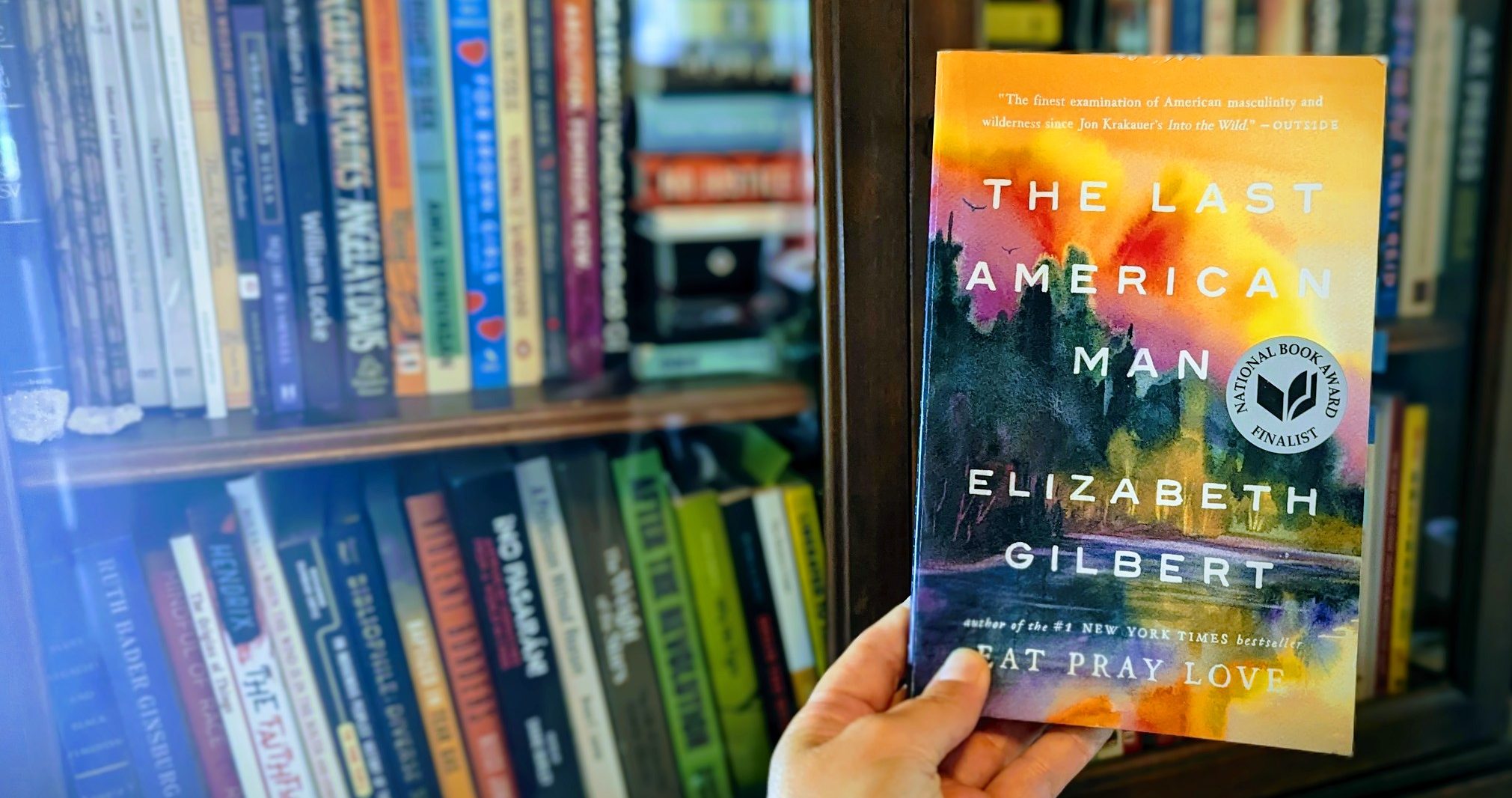 (3 / 5) – It’s Okay
(3 / 5) – It’s Okay
It’s not every day a skinny little, 271 page book leaves you deeply conflicted and wrestling both with what you enjoyed about a book and what disturbed you. I randomly picked up Elizabeth Gilbert’s “The Last American Man” a few weeks ago. It is a short non-fiction book that was a National Book Award Finalist about Eustace Conway, a man embodying a way of life closer and in healthier relationship to nature.
First and foremost, I love Elizabeth Gilbert’s writing. I don’t always enjoy her subject matter or the stories she tells, but her voice and writing style captivates me and I find myself willing to read just about anything she writes, even when the subject matter on the surface leaves me cold. I was torn even when I picked up this book because the back made it feel like a glorification of a white man trying to save the world by telling us to just live a simpler and more “indigenous” life. Having now read “The Last American Man,” there certainly is truth in that gut characterization, but it isn’t the fullest or most honest description.
Gilbert knows and loves Eustace Conway and his family. Her care and compassion for the subject while trying to have a critical eye on his life’s choices and work comes across clearly. I am not a reader who thinks one has to be disengaged and somehow “objective” when writing about a subject and I enjoyed the richness Gilbert’s personal relationship captured through the story and her reflections on Eustace, his family and his way of life.
While reading this book I find myself wrestling internally. Here is a story about a naturalist longing to help the world see a better way to live with self-sufficiency, self-reliance and skills that have been lost to our modern culture. I am American and I have been raised to believe self-reliance or at least the myth of it is worthy of not only praise but a bit of worship. Men such as Eustace Conway with their “cowboy” ways continue to occupy my midwestern imagination as one who grew up on Westerns with their “lone cowboys” and “noble savages.” In the midst of this book I found myself romanticizing and longing to be more like Conway while simultaneously wanting a clearer critique of these indoctrinated American values as limiting and unsustainable in the long run, which Conway found out.
The lone wolf archetype is not one to romanticize or achieve because the lone wolf is just that, alone. The world changes in community as Conway, along with many others, discovered. When an alternative way of being in relationship is embodied it has to be with other people in order for it to be sustained. When it’s about one person, one way of doing things, a dictatorship that asks for obedience at all cost without healthy relationships one can have all the best ideas in the world but it doesn’t matter. It has a shelf life of a single person. Gilbert certainly does not sugar coat the humanity of Conway or shy away from his faults and shortcomings. As a reader I was simply left wanting clearer critique of America’s conflicting values, but perhaps that was an unfair expectation.
Overall, it is a good read and if you are going to be out in the woods and are looking for something engaging, brief and which won’t add too much weight to your bags, this is definitely worth your time.
Happy Reading
Hannah

